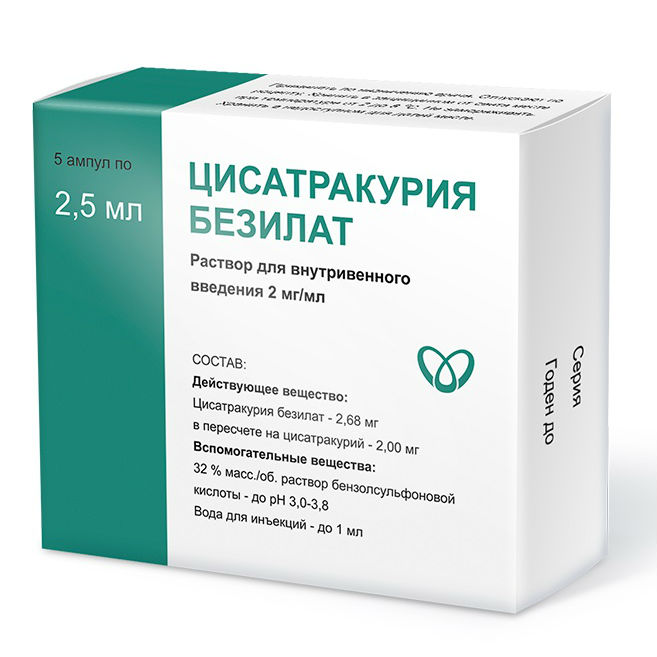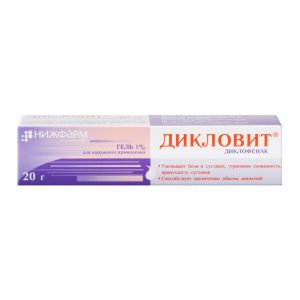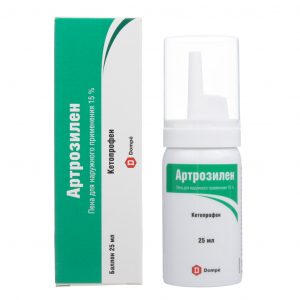Description
Pharmacological action
Peripheral muscle relaxant of non-depolarizing competitive type. It blocks n-cholinergic receptors of the end plates of skeletal muscle fibers and prevents the depolarizing effect of acetylcholine, resulting in inhibition of neuromuscular transmission at the level of the postsynaptic membrane. In therapeutic doses, it has insignificant m-anticholinergic and ganglioblocking activity.
The action develops rapidly, which allows intubation in the first 90 seconds from the moment of administration in doses of 500-600 mcg / kg.
At doses of 200-600 mcg / kg, it has a predicted proportional to the value of the administered dose of skeletal muscle paralysis, which lasts 15-35 minutes.
The rate of recovery of neuromuscular transmission after administration (single and repeated) is constant, which allows repeated doses to be administered at predictable time intervals. The restoration of normal neuromuscular transmission without the use of anticholinesterase agents occurs after 35 minutes and does not depend on the total dose and the function of excretory organs and metabolism.
Pharmacokinetics of
After iv administration, it is spontaneously metabolized by elimination of Hofmann (an non-enzymatic process that occurs at physiological pH and body temperature), as well as by ether hydrolysis with the participation of non-specific plasma esterases. This leads to the formation of laudanosine and other metabolites. Metabolites do not have muscle relaxant activity.
The binding of atracuria besylate to plasma proteins is about 80%.
T1 / 2 atracuria besilata is approximately 20 minutes, laudanosine – about 3 hours. It is excreted in the urine and bile mainly in the form of metabolites.
Indications
For muscle relaxation during surgical interventions and diagnostic procedures (if there are funds for endotracheal intubation and mechanical ventilation).
Contraindications
Hypersensitivity to atracuria besylate.
Special instructions
Use with caution in patients with increased sensitivity to histamine.
In patients with myasthenia gravis, other neuromuscular diseases and severe electrolyte disorders may cause increased sensitivity with the use of non-depolarizing muscle relaxants, including atracuria besilata.
To increase the duration of neuromuscular blockade caused by non-depolarizing muscle relaxants, including with atracuria besylate, depolarizing muscle relaxants should not be used.
Composition
Active ingredient: atracuria besylate 10 mg
Excipients: benzenesulfonic acid – 0.05 mg, water d / i – up to 1 ml.
Dosage and administration
Individual. Intravenously injected, bolus, drip. The dose, depending on the route of administration and the clinical situation, varies from 100 mg / kg to 600 mg / kg.
Side effects
From the cardiovascular system: transient arterial hypotension.
From the side of the central nervous system: in isolated cases – convulsions (in predisposed patients).
Allergic reactions: fever, bronchospasm (may be due to an increase in histamine release) rarely – anaphylactoid reactions.
Other: hyperemia of the skin.
active substance
cisatracurium besilate
Terms of delivery from
pharmacies Prescription



